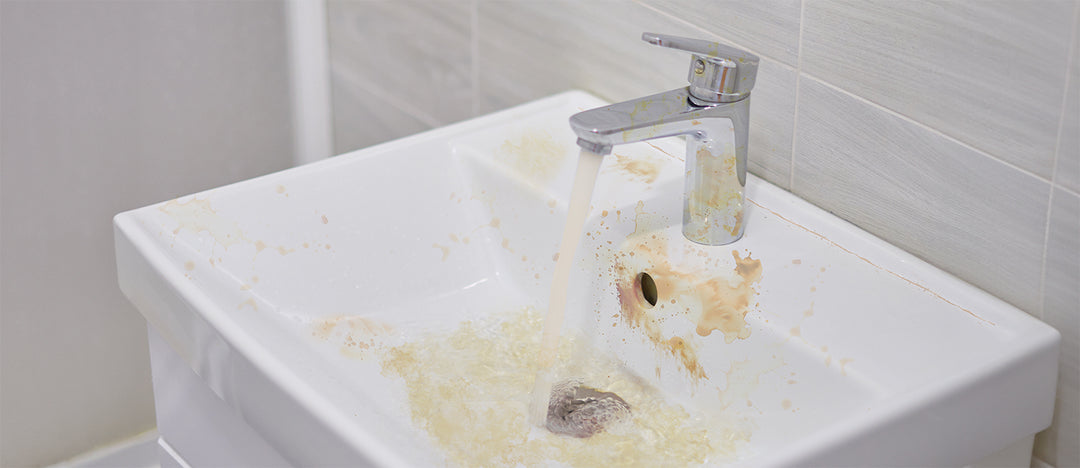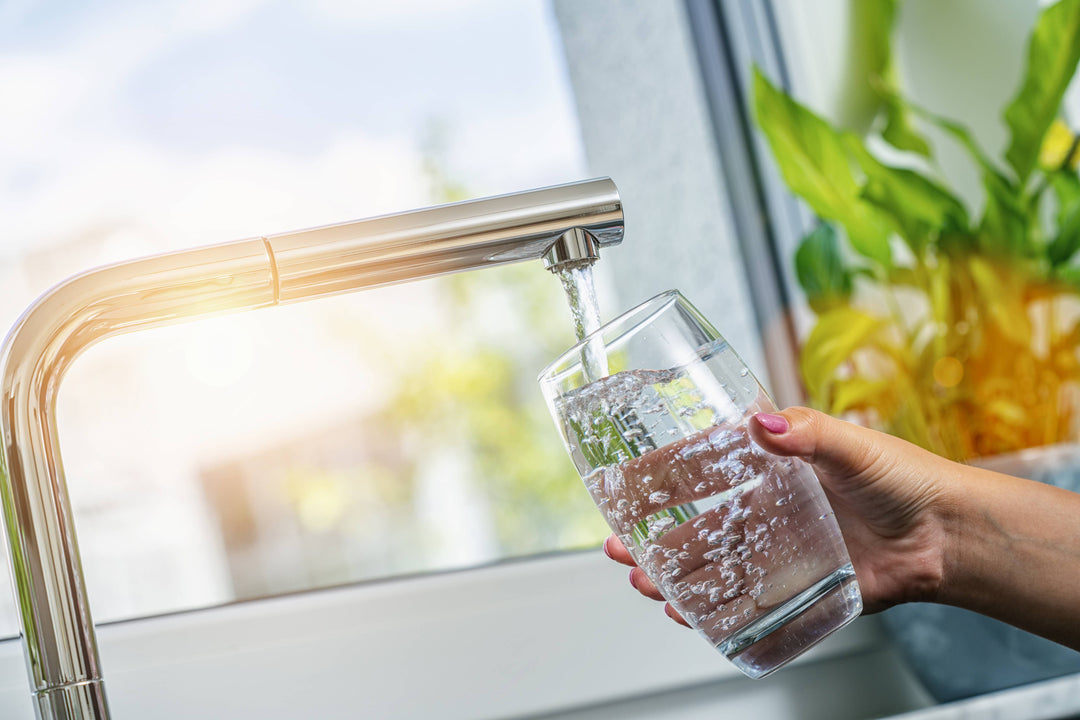Why Choose a Salt-Free Water Softener? 7 Key Benefits
Table of Contents
- Introduction
-
Understanding Hard Water and Its Effects
- What Is Hard Water?
- Regional Variations in Water Hardness
-
What Is a Salt-Free Water Softener and How Does It Work?
- Salt-Free vs. Traditional Water Softeners
-
Top 7 Benefits of Using a Salt-Free Water Softener
- 1. Eco-Friendly and Sustainable Solution
- 2. Low Maintenance and Cost-Effective
- 3. Healthier Water for Drinking and Cooking
- 4. Protects Appliances and Plumbing
- 5. Softens Water Without the Slimy Feel
- 6. Eco-Conscious Choice for Your Household
- 7. Easy Installation and Compatibility
- Types of Water Softeners: Choosing the Right System
- Frequently Asked Questions (FAQs) About Salt-Free Water Softeners
- Conclusion
Introduction
Hard water is a common issue that many households face. It leads to problems such as dry skin, dull hair, and scale buildup in plumbing systems. These issues can damage your home’s appliances and increase maintenance costs. Traditional water softeners have been the go-to solution, but in recent years, salt-free water softeners have gained popularity due to their environmental benefits and low maintenance needs.
In this article, we'll explore the top 7 benefits of using a salt-free water softener, helping you decide if it's the right choice for your home.
Understanding Hard Water and Its Effects
What Is Hard Water?
Hard water is water that has a high concentration of dissolved minerals, primarily calcium carbonate and magnesium. These minerals can have various effects on your home and body, including:
- Scale buildup in pipes and appliances, leading to reduced efficiency and increased energy costs.
- Dry, irritated skin and dull hair due to the minerals reacting with soap, reducing its effectiveness.
- Spotty dishes and stiff laundry caused by the minerals preventing soap from lathering properly.
Regional Variations in Water Hardness
Water hardness levels can vary significantly depending on your location. For instance, in Ottawa, water from the Ottawa River may have different hardness levels compared to groundwater sources. Understanding the specific water hardness in your area can help you choose the right water softening solution.
What Is a Salt-Free Water Softener and How Does It Work?
A salt-free water softener, often referred to as a water conditioner, is a device that prevents the negative effects of hard water without using salt. Unlike traditional water softeners that use an ion exchange process to remove calcium and magnesium ions, salt-free systems use Template Assisted Crystallization (TAC) or catalytic media to change the structure of these minerals, making them less likely to adhere to surfaces.
Salt-Free vs. Traditional Water Softeners
| Feature | Salt-Free Water Softeners | Traditional Water Softeners |
|---|---|---|
| Water Treatment Process | Alters mineral structure to prevent scale | Removes calcium and magnesium through ion exchange |
| Maintenance | Low maintenance, no salt refills needed | Requires regular salt refills and resin cleaning |
| Environmental Impact | No salt discharge, eco-friendly | Discharges salt into wastewater |
| Effectiveness on Hard Water | Reduces scale buildup but does not remove minerals | Removes minerals, effectively softening water |
| Water Taste | No added sodium, retains minerals | May add sodium to water, which some people dislike |
Top 7 Benefits of Using a Salt-Free Water Softener
1. Eco-Friendly and Sustainable Solution
Salt-free water softeners are an eco-friendly choice for homeowners who are conscious of their environmental impact. Here’s why:
- No Salt Discharge: Unlike traditional systems, salt-free softeners do not discharge salt into the environment, making them safer for ecosystems.
- Energy Efficiency: These systems prevent scale buildup in water heaters and appliances, which can improve energy efficiency and reduce your carbon footprint.
- Water Conservation: Salt-free systems do not require backwashing cycles, saving significant amounts of water.
2. Low Maintenance and Cost-Effective
One of the standout benefits of salt-free water softeners is their low maintenance requirements:
- No Salt Refills Needed: Traditional systems require regular refills of salt, which can be heavy, expensive, and cumbersome. Salt-free systems eliminate this need entirely.
- Long-Lasting Media: The media used in salt-free systems are durable and often last several years before needing replacement.
- Minimal Upkeep: With no need for salt or complex maintenance procedures, these systems are highly cost-effective over time.
3. Healthier Water for Drinking and Cooking
Salt-free water softeners provide healthier water for your household:
- No Added Sodium: These systems do not add sodium to your water, making them ideal for those on low-sodium diets.
- Retains Essential Minerals: Unlike traditional systems that remove calcium and magnesium, salt-free systems retain these beneficial minerals in your water.
- Improved Taste: By reducing chlorine and other chemicals, these systems can improve the taste and odor of your water, especially when combined with carbon filtration.
4. Protects Appliances and Plumbing
Using a salt-free water softener helps protect your home’s plumbing and appliances:
- Prevents Scale Buildup: The primary function of these systems is to prevent the formation of scale on pipes and appliances, which can extend their lifespan.
- Reduces Maintenance Costs: By minimizing scale, you reduce the need for frequent repairs and maintenance on water heaters, dishwashers, and washing machines.
- Less Damage to Pipes: Salt-free systems help keep your plumbing system in good condition, preventing the clogs and corrosion often caused by scale buildup.
5. Softens Water Without the Slimy Feel
Many people dislike the slimy feel that traditional softeners can leave on the skin. Salt-free systems avoid this issue:
- Natural Water Texture: Salt-free systems maintain the natural feel of water, avoiding the slippery texture associated with traditional softened water.
- Better for Showering: Conditioned water is gentler on the skin and hair, leading to improved texture without the slimy residue.
- Softer Clothes and Cleaner Dishes: Salt-free systems help keep your laundry soft and your dishes free of spots and residue.
6. Eco-Conscious Choice for Your Household
Choosing a salt-free water softener is an eco-conscious decision:
- Environmentally Friendly: Salt-free systems do not use or discharge chemicals, making them safer for the environment and suitable for use in homes with gardens or water-sensitive plants.
- No Chemical Additives: These systems condition water without adding harsh chemicals, ensuring that the water is safe for all household uses.
- Energy Efficiency: The prevention of scale buildup results in energy savings, particularly in water heating.
7. Easy Installation and Compatibility
Salt-free water softeners are known for their easy installation and compatibility with existing home setups:
- Simple Installation Process: Many salt-free systems are straightforward to install, often without the need for professional help.
- Compatibility with Existing Systems: These systems can easily integrate with your current plumbing, making them a versatile choice for various home configurations.
- Versatile Applications: Whether you have a small home or a large household, salt-free systems are adaptable to different water usage needs.
Types of Water Softeners: Choosing the Right System
When choosing a water softening solution, it’s essential to understand the different water softener types available:
-
Ion Exchange Water Softeners: These traditional systems use resin beads to remove calcium and magnesium from water through an ion exchange process. They are highly effective in areas with very hard water but require regular maintenance, including salt refills and resin cleaning.
-
Salt-Free Water Softeners: These systems condition the water by altering the structure of hardness minerals rather than removing them. They are ideal for households looking for a low-maintenance, eco-friendly solution.
Comparison Table:
| Feature | Ion Exchange Water Softeners | Salt-Free Water Softeners |
|---|---|---|
| Mineral Removal | Yes (removes calcium and magnesium) | No (alters mineral structure) |
| Maintenance | High (requires salt refills and resin care) | Low (minimal upkeep) |
| Environmental Impact | High (discharges salt into the environment) | Low (eco-friendly, no salt discharge) |
| Water Texture | Soft, sometimes slippery | Natural, no slippery feel |
| Installation Complexity | Moderate to High | Low to Moderate |
| Suitability for Very Hard Water | Very Effective | Effective but may have limitations |
Frequently Asked Questions (FAQs) About Salt-Free Water Softeners
Do Salt-Free Water Softeners Really Work?
Yes, salt-free water softeners effectively reduce scale buildup in plumbing and appliances by altering the structure of hardness minerals. However, they do not remove these minerals from the water, so they may not be suitable for areas with extremely hard water.
Can a Salt-Free System Handle Very Hard Water?
Salt-free systems can manage moderate to hard water effectively, but in regions with extremely hard water, traditional ion exchange softeners might be more effective. Testing your water’s hardness level can help determine the best solution.
How Often Do You Need to Replace the Media?
The media in salt-free water softeners typically last several years, often between 3 to 5 years, depending on water usage and hardness levels.
Is a Salt-Free Water Softener Safe for All Types of Plumbing?
Yes, salt-free systems are safe for all types of plumbing materials, including copper, PVC, and PEX.
What Is the Cost of a Salt-Free Water Softener?
The initial cost of our premium and ultimate whole house water softener Systems can range from $895.95 to $2,245.95 with 44% off, depending on the model and capacity. However, they tend to be more cost-effective over time due to lower maintenance and operating costs.
Conclusion
Salt-free water softeners offer a range of benefits, from being eco-friendly and low maintenance to providing healthier water for your family. They protect your appliances and plumbing, all while maintaining the natural texture of your water. If you're looking for a water softening solution that aligns with your environmental values and reduces household maintenance, a salt-free system might be the perfect fit.
For more information and to explore our range of salt-free water softeners, schedule a free consultation to find the best water softening solution for your home. and you can Check our collections to learn more about how our solutions can make a difference in your daily life.





